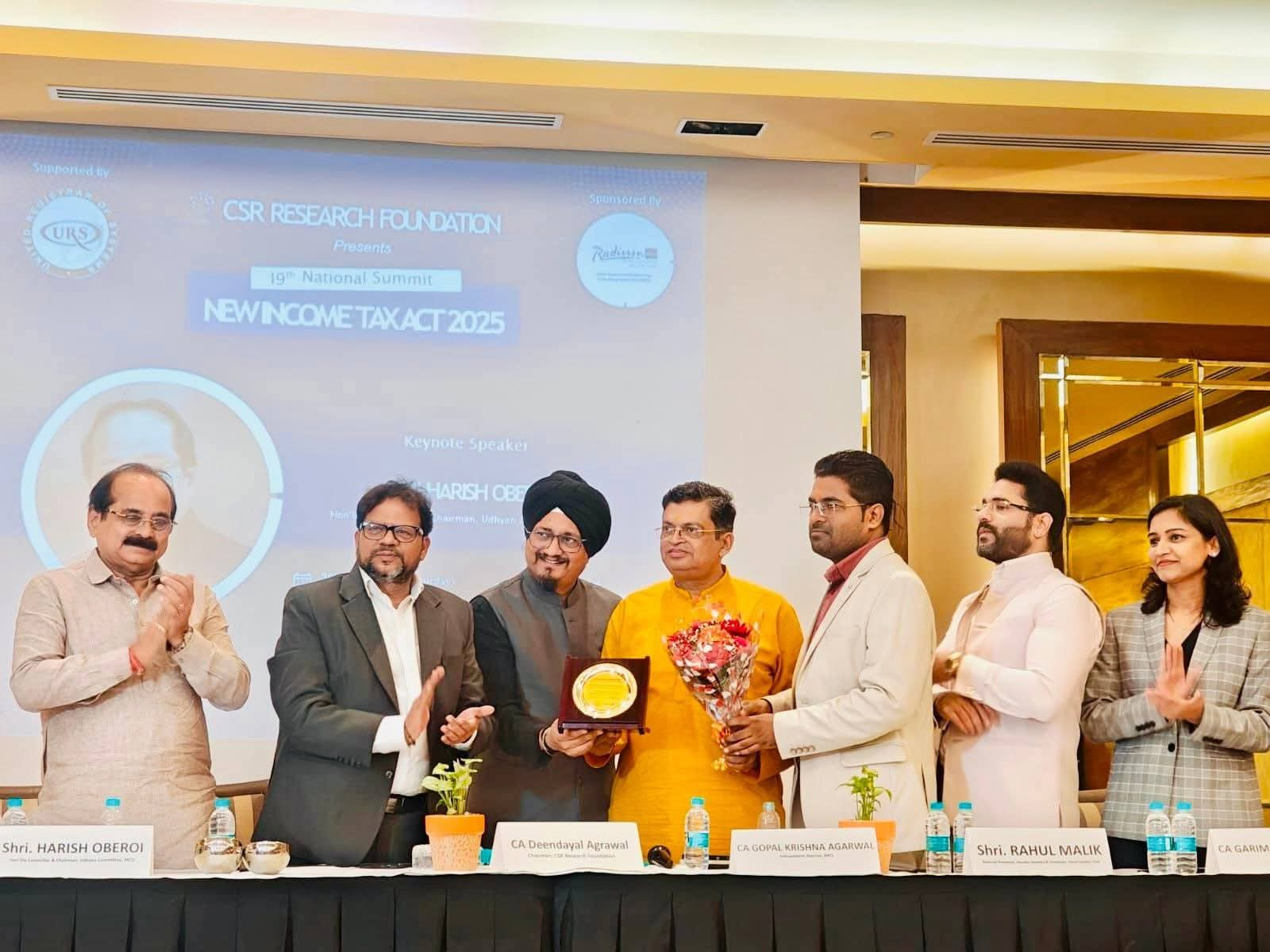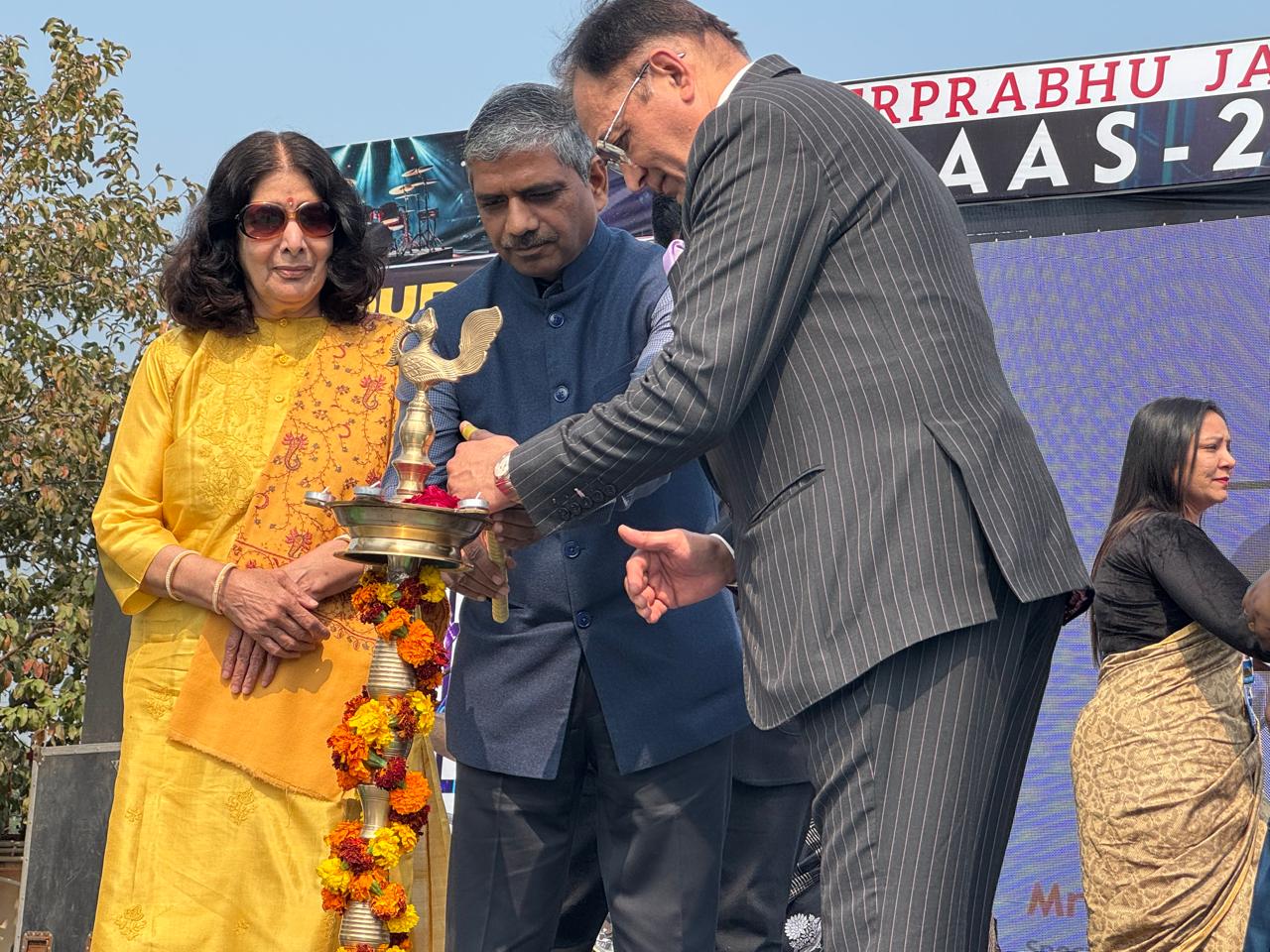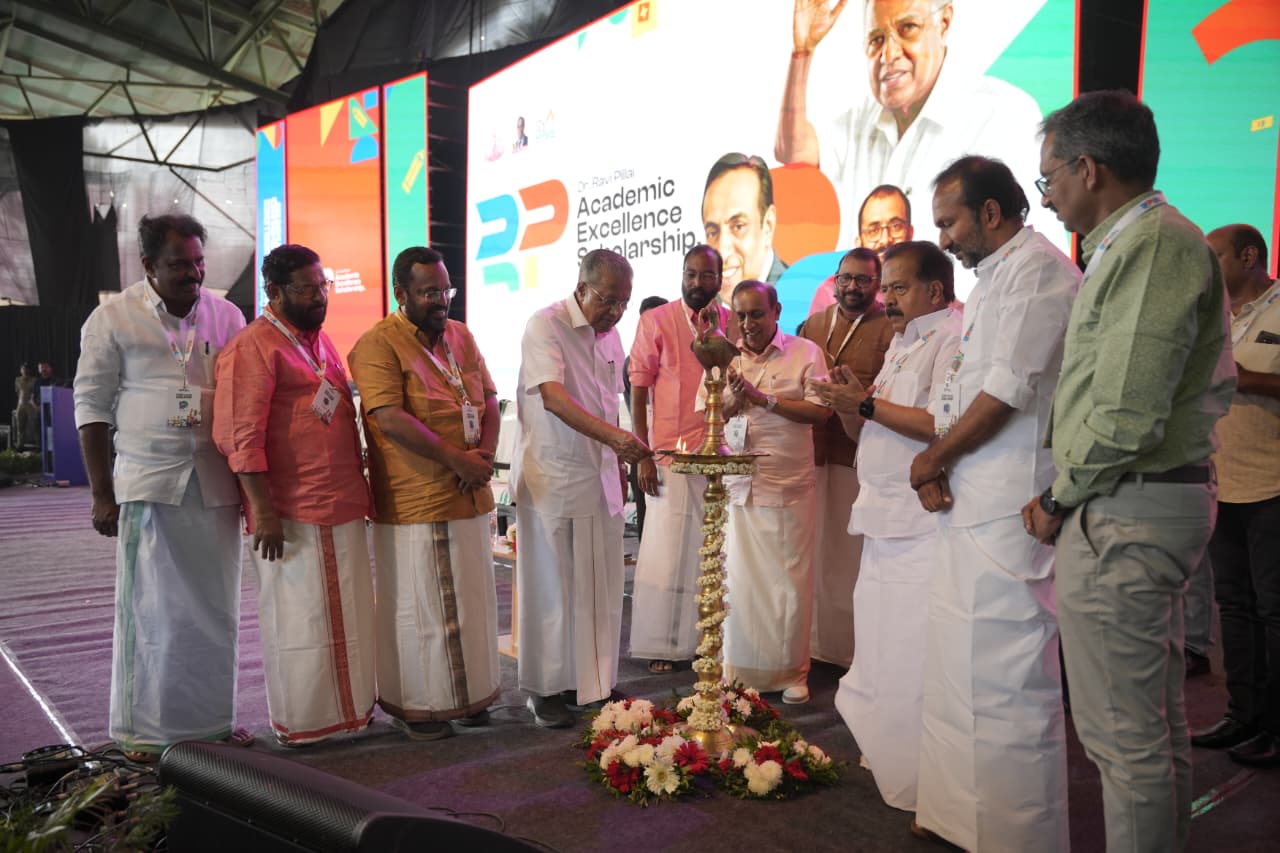New Delhi, August 30:
The CSR Research Foundation successfully organised its 19th National Summit on the “New Income-Tax Act, 2025” at Radisson Blu, Paschim Vihar. The Summit brought together distinguished personalities from the fields of taxation, policy and governance, as a milestone to Viksit Bharat 2047.
Among the prominent participants CA Gopal Krishna Agrawal, Director, BPCL, delivered the keynote address, Shri Harish Obrai, Councillor, Municipal Corporation, Delhi, inaugurated the Summit along with CA Deen Dayal Agrawal, Chairman, CSR Research Foundation, Shri Rahul Malik, Social Activist, CA Ravi Sethi, CA Rajender Arora, CA Garima Maheshwari and several other eminent professionals. The Summit witnessed the presence of more than hundreds of distinguished dignitaries and participants, contributing to enriching deliberations and meaningful exchanges.
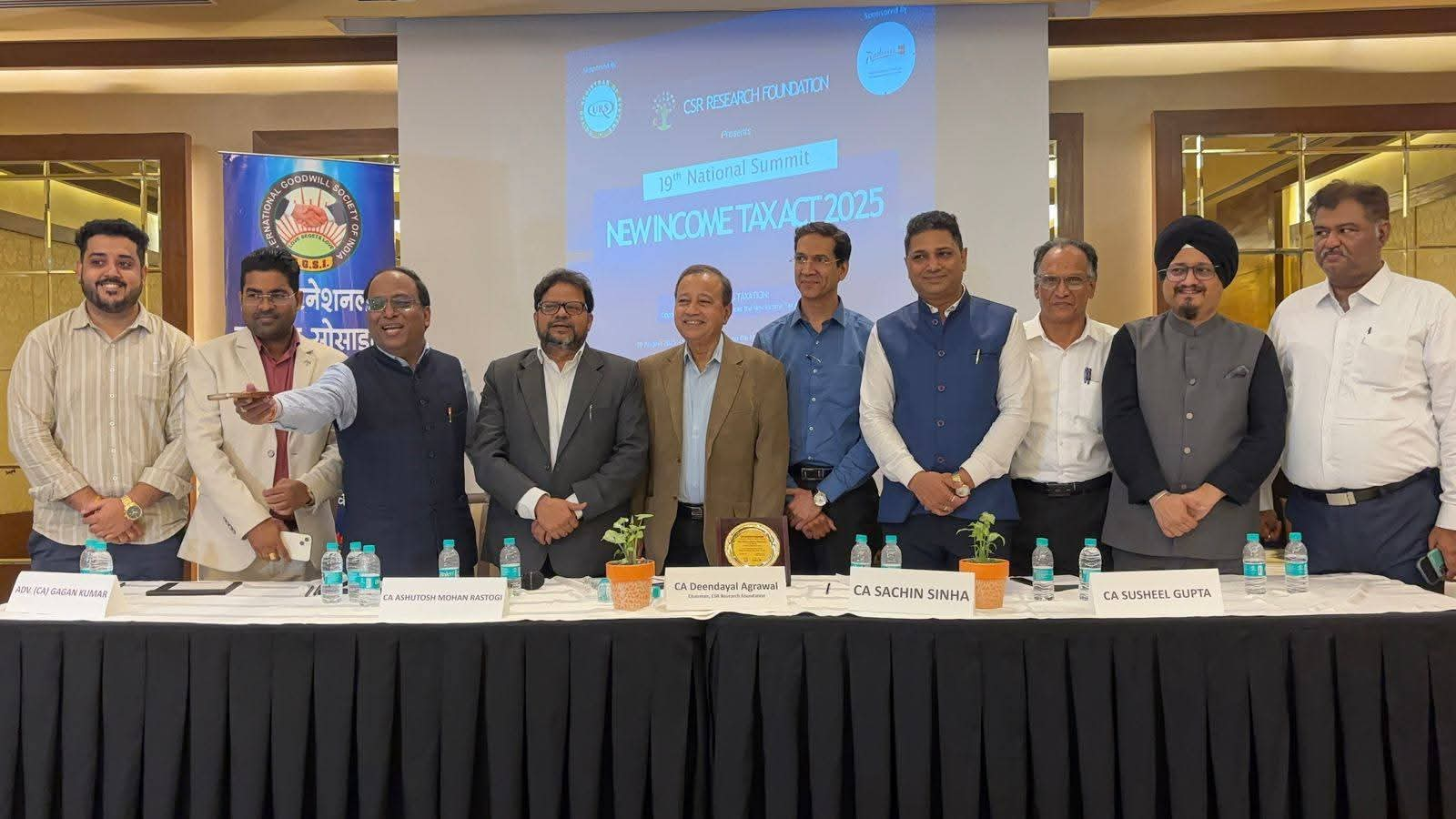
The focus of the Summit was the recently enacted Income-Tax Act, 2025, which replaces the Income-Tax Act of 1961—India’s principal tax legislation in force for over 63 years. Passed by Parliament in August 2025 and receiving Presidential assent on 21 August, the new law will take effect from 1 April 2026. It is regarded as one of the most significant reforms in India’s fiscal landscape in decades.
The panellists noted that the 1961 Act, with over 800 sections across 47 chapters, had become excessively voluminous and complex, making compliance difficult for the ordinary taxpayer. The new law seeks to simplify matters by reducing the provisions to 536 sections and 23 chapters, while using clearer language, formulas and tables.
Other Key Points Discussed at the Summit
- Introduction of “Tax Year”: The Act introduces the concept of a “Tax Year”, replacing the earlier use of “assessment year” and “previous year”. This aims to remove long-standing confusion, though participants emphasised the need for extensive taxpayer education during the transition.
- Digitalisation and Technology: The new Act significantly expands digital processes, including faceless assessments, simplified refund procedures and structured communication safeguards. These reforms are designed to improve transparency and reduce discretionary powers.
- Artificial Intelligence and Data Use: Discussions highlighted the potential use of AI and digital technology in strengthening compliance, with possibilities for the Income-Tax Department to better assess patterns of income and expenditure through data-driven tools. While promising efficiency, experts stressed the importance of balancing innovation with privacy rights.
- Access to Digital Space: Concerns were raised about provisions that permit tax authorities to access emails, social media and online accounts. Experts urged that such measures must be implemented with strict safeguards to protect citizens’ privacy.
- Support for MSMEs, Not-for-Profits and Start-ups: A dedicated session explored targeted measures in the Act that simplify compliance for these sectors, encouraging growth and innovation.
- Cross-Border Taxation: The Act introduces simplified rules for international payments and transactions, supporting India’s integration with global business practices and advancing the vision of Hon’ble Prime Minister Shri Narendra Damodar Das Modi for ease of doing business.
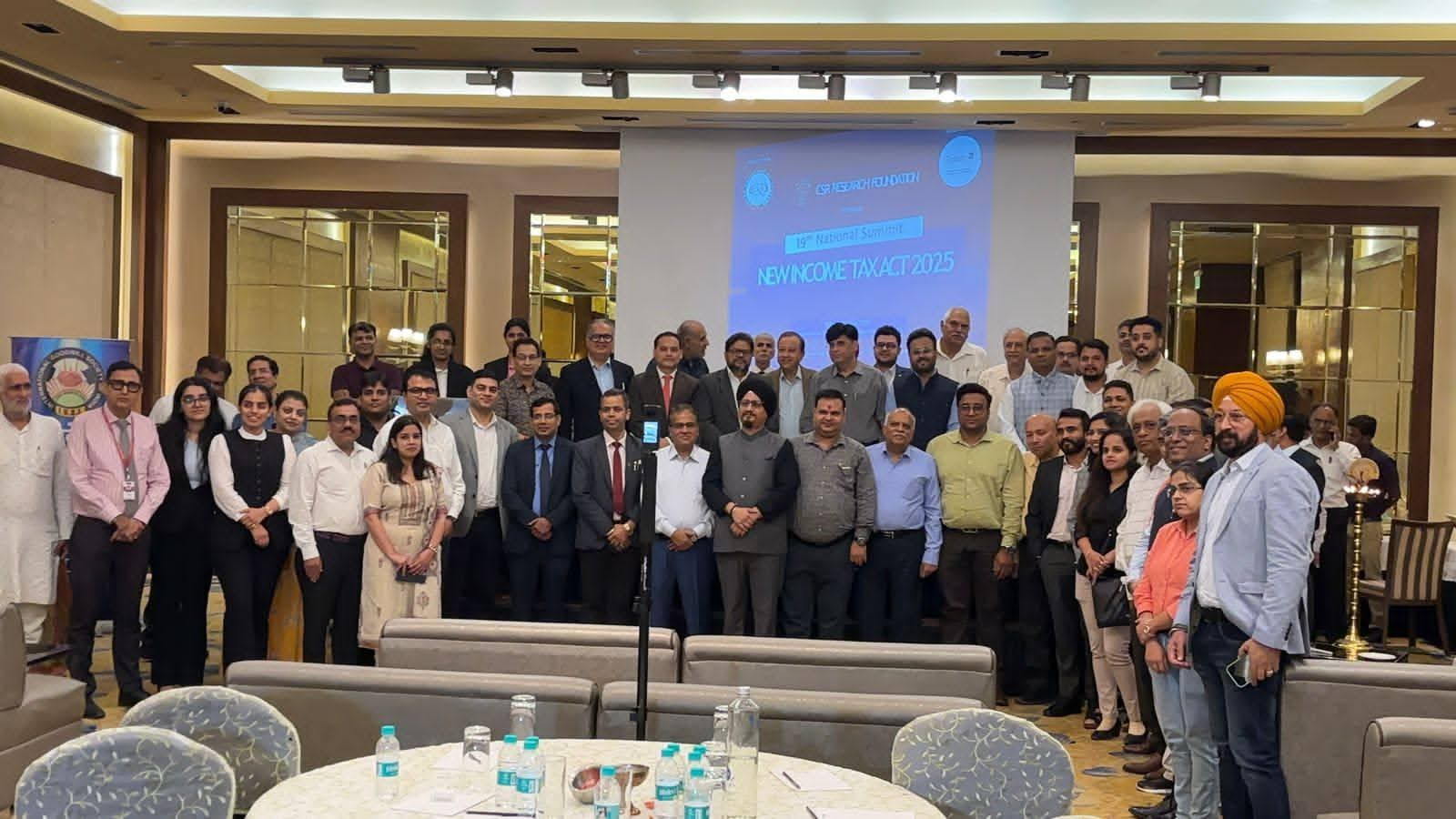
Panellists at the Summit agreed that the Income-Tax Act, 2025 represents a landmark reform, offering competitive simplification, modernisation and fairness in India’s tax regime. However, its success will depend on effective implementation, widespread taxpayer awareness and the establishment of robust safeguards to prevent misuse of its digital access provisions.

